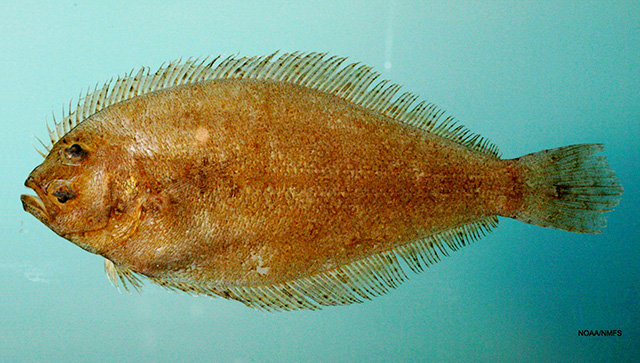| Paralichthyidae (Large-tooth flounders) |
| 30 cm TL (male/unsexed) |
|
reef-associated; depth range 10 - 140 m |
| Western Atlantic: North Carolina, USA and northern Gulf of Mexico to Brazil. Eastern Atlantic: Ascension Island (Ref. 26340). |
|
Dorsal spines (total): 0-0; Dorsal soft rays (total): 79-94; Anal spines: 0-0; Anal soft rays: 63-75. In males, the 1st and 2nd rays of the pectoral fin become filamentous (Ref. 35237). |
| Predator which lives on the bottom where it hides partially or almost completely in the sand in order to disguise itself in the environment. Feeds on small fish and invertebrates. Exhibits sexual dimorphism (Ref. 35237). Marketed fresh (Ref. 5217). |
|
(Ref. 96402)
|
| harmless |
|
Source and more info: www.fishbase.org. For personal, classroom, and other internal use only. Not for publication.
Page created by Jen, 05.08.02,
php script by kbanasihan 06/09/2010 ,
last modified by
dsantos, 20/08/10

